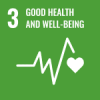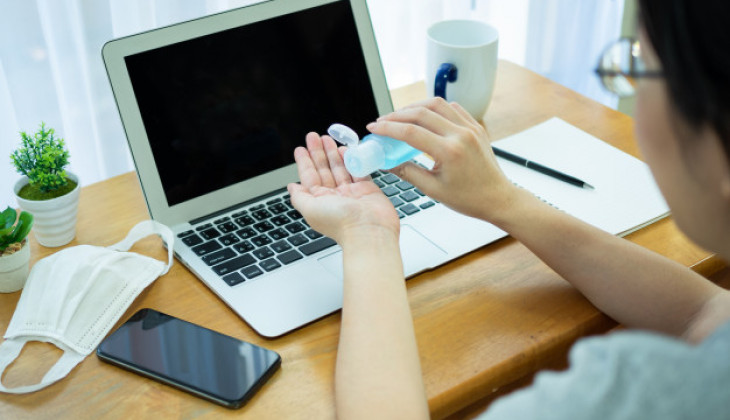New habit adaptation in the campus environment is essential to prevent the spread of Covid-19 to its academicians. Epidemiologist and Director of the Center for Tropical Medicine, Faculty of Medicine, Public Health, and Nursing UGM, dr. Riris Andono Ahmad, MPH., Ph.D., said that adapting new campus environment habits is vital to be issued amid the Covid-19 pandemic. This necessity is due to the world of education requiring interaction between students and lecturers.
“If you review the risks that BNPB has outlined, every campus is one of the business sectors that has the possibility to have a high risk of transmitting Covid-19, even though it seemed do not have quite a high risk compared to the market, economically,” he said when delivering a speech in the webinar on Preparing for Adaptation to New Habits in the Campus Environment on Thursday (8/10).
Recently, there was news that revealed hundreds of students were tested positive for Covid-19 in Jakarta. This condition was proof that the campus environment is an area with high-risk possibilities for Covid-19 transmission. Not only that, but students can also become the medium community in transmitting Covid-19 to the community.
Accordingly, it is hoped that this webinar can be a medium for Riris to provide an overview of what UGM has done to prevent and control Covid-19 in the campus environment. “Hopefully, we can share experiences and become a role through providing an overview of what universities can do so that they can contribute and attempt to control it instead of becoming a center of Covid-19 transmission,” he explained.
Head of the UGM Covid-19 Task Force, Dr.dr. Rustamadji, M.Kes., conveyed that UGM composed various adjustments in implementing education during the adaptation period for new habits during a pandemic. The way UGM carried out learning activities is indeed still online. However, if the learning process should be face-to-face learning, health protocols must be implemented, and the meeting was only for no more than 30 minutes.
Discovering from SARS-CoV2 transmission, Rustamadji said that keeping a distance is an essential factor. Therefore, he also arranged the lecture hall by reducing the population up to 60 percent. Likewise, in practicum places, studios, and others, they still apply health protocols.
“As much as possible, please reduce offline activities and strengthen online learning, including practice learning, lab skills, and visits to hospitals. All of those should be replaced online if possible,” Rustamadji explained.
Meanwhile, medical education students, dentists, pharmacists, midwifery, nursing for the professional level were better to take a line that is not directly contacted to Covid-19 sufferers. Meanwhile, special education students who might contact Covid-19 patients are highly suggested to pay attention to environmental modifications and health protocols.
“Implementation of health protocols, PPE, and supporting facilities for students who might contact Covid-19,” he explained.
Another step taken to prevent the transmission of Covid-19 on campus is to promote makers wearing and hand-washing in the campus environment. Moreover, always maintain the ethics of coughing and sneezing. Besides, please also reduce the number of individuals working hours in the office with a system of 14 days WfO and 14 days WfH and keeps the environment clean.
Meanwhile, to support learning, strengthening health service facilities, strengthening tracking capabilities, and tracing and testing are carried out. Then the preparation of means of isolation and promotion of adaptation to new habits.
dr. Citra Indriani, MPH., as the researcher at the Center for Tropical Medicine, Faculty of Medicine, Public Health, and Nursing UGM, also said that direct meeting education activities’ resumption would increase the risk of a new Covid-19 cluster as has happened in several Islamic boarding schools in Java as a new cluster of Covid-19 transmission through students.
“There are direct meeting education activities which have generated new clusters in both dormitories and boarding schools,” she said.
Citra revealed that the boarding house is also a susceptible area to become a place for Covid-19 transmission. Several Covid-19 clusters, such as campuses and workplaces that were formerly initiated by transmission in boarding houses.
“If only one side implements the health protocol, for example, we carry out health protocols only in the office, while at the boarding house, we become ignorant to health protocols, then there must be an inevitable new cluster. Therefore, the wheels to implement the health protocol must be cooperatively implemented,” she explained.
He said several factors support the dispatch of Covid-19 transmission in dormitories and Islamic boarding schools. One of them is not taking self-quarantine for 14 days. When people do not optimally implement one of these health protocols, it presumably could increase the risk of transmission through people who are still in the infectious period with those who are vulnerable to exposure with Covid-19. Besides, the implementation of face-to-face classes that are not supported by health protocols has also stimulated the transmission of Covid-19 moreover, if we carry out social activities in dormitories and boarding houses without complying with health protocols. Not reporting any early symptoms also stimulates the transmission of the coronavirus between students or residents of dormitories or boarding houses.
Even so, Citra said that there were hints for limiting the transmission of Covid-19. First, the existence of residential blocks helps prevent the spread of transmission. Furthermore, a kind of disciplined individual implementing health protocols will be very helpful. For example, an orderly boarding house or hostel manager implements health protocols for its residents.
To prevent transmission in dormitories or boarding houses, Citra urged to mandate 14 days of quarantine for residents from outside the area who have just returned. Then, limit social interactions between residents and routinely disinfect shared facilities or areas.
“The lesson we can take is clear, cooperation between individuals is important to prevent the Covid-19 transmission,” he said.
Head of Health Promoting University (HPU) UGM, Prof. Yayi Suryo Prabandari, in her remarks, also conveyed about prevention and control behavior that requires to be adapted into a habit for both individuals and society. You need to comply with health protocols in everyday life for the individual level, such as wearing a mask when you have a cold, going out of the house, keeping your distance, and frequently washing your hands with soap in running water. Apart from that, avoid the crowd. No less important, always update credible health sources in finding information, exercise, a healthy diet, and not smoking.
Yayi also advised society to be alert when going to the hospital or minimizing physical contact. Besides, immediately going to see the doctor and consulting when you feel sick. In addition, do not forget accustoming health literacy and building empathy and solidarity between people.



